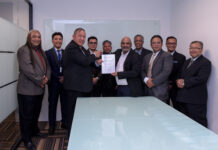By Khalid Noorshah
Hoteliers are urging the government to apportion some amount from the Tourism Tax collected since 2018 to hotels to assist them weather the present crisis brought about by the Covid-19 pandemic.
The Malaysian Association of Hotel Owners (MAHO) Executive Director, Shaharuddin M. Saaid said, the Tourism Tax is one source of fund that can be used in assisting hoteliers pay for wages of employees after the three months wage subsidy under the Bantuan Prihatin Nasional (BPN) Economic Stimulus Package ends.
“This is a good time as any to utilise the fund whose main aim is to help the industry,” he said while adding that he estimates the Tourism Tax collected over the two-year period by hoteliers for the government is around RM240 million.
According to Shaharuddin, the proposal is one of many that MAHO has submitted to the government recently in seeking a review to the present stimulus package and replace it with a special package instead, to address the concerns of the hotel industry.
“Hopefully the government gives due consideration to our proposal, not only to keep the hotel industry surviving and sustain the business but also to avoid a sudden surge of unemployment among hotel workers that could prove to be catastrophic,” he said.
Shaharuddin said, the main concern is to pay salary to staff and that money saved and received from tax cuts and other contributions which can be deferred, will help hoteliers in keeping up with the government’s request not to terminate workers in a six-month period following the enforcement of the Movement Control Order (MCO) March last.
According to the Statistic Department censure, there were 139,410 people working in the hotel industry in 2016. Shaharuddin on the other hand, estimates that the number of workers in the industry has risen to about 150,000 since then with the opening of a number of new hotels.
MAHO has 97 member companies who each of them operates one or more of 200 three to five star hotels in the country.
Shaharuddin said, MAHO has also proposed that the government consider waiving some of the 35 licences and permits that hoteliers have to pay yearly, besides reimbursing fees for the Human Resource Development Fund (HRDF) until the tourism and travel industry stabilises.
“Although there is a moratorium of three months for the contributions to the HRDF and Social Security Organisation (Socso), hoteliers are not included in the moratorium for Employees Provident Fund (EPF) which is presently only limited to SMEs.
“We urge that the moratorium for the contributions to EPF should include hoteliers and implore the government to also extend the moratorium to include contributions to the Employees Insurance System (EIS) and prolong the present moratorium for all these contributions to another six to ten months.
“There is an estimated RM1 billion in the EIS fund collected whose purpose is to assist workers when they are being terminated. The fund has excess and some of it can be utilised now to help the hoteliers pay wages for their staff.
“During this time of no operation, no business hence no revenue, whatever financial source that hotels could secure would be of a great help to assist in cash flows. After all those contributions are our own money,” he said.
Under the BPN Economic Stimulus Package, companies who post a 50% loss in revenue are eligible to a wage subsidy program. Companies that employ more than 200 people will receive a wage subsidy of RM600 for each worker eligible to 200 workers; companies that employ 76 to 200 workers receives RM800 for each worker and companies that employ 1 to 76 workers receives RM1,200 for each worker on the condition that they must retain their staff for at least six months.
According to Shaharuddin, only a quarter of hotels in the country are able to benefit from the BPN Economic Stimulus Package while the others are unable to cope with the high cost of running a hotel.
“The economic stimulus package is not business friendly. It gives some sort of relief for three months but recovery of hotel and tourism business affected by Covid-19 could be a very long one, a year or more.
“The operating cost of hotels are very high. The hotel industry besides the airline companies are the most impacted by the pandemic and to date at least 15 hotels has stopped operations permanently since May 1st.
“I expect many more hotels will follow suit, either closing down permanently or for a temporary period of time. I foresee the present situation will prolong to at least another 10 months, therefore government assistance is much needed in order for hotels to survive,” he said.












